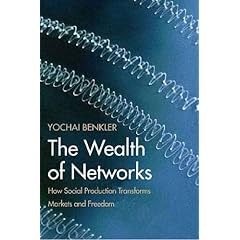Thursday, 26 July 2007
The ‘war on terror’ has created the conditions for a new era of content regulation in the form of censorship of film and literature, broadcasting content standards and restrictions on the media in respect of national security matters. This week David Marr commented on the Attorney-General’s recent daubing (sorry I am sticking with the “unifinished canvas” metaphor) – the Material that Advocates Terrorism Discussion Paper released in May 2007 and the upcoming meeting with the States in Hobart at the end of this week. The Discussion Paper attracted many submissions from a diverse group of interested parties. See the submissions. The comments of Maureen Shelley from the Office of Film and Literature Classification Board echo the sentiments in many of the submissions made to the Attorney-General on the terrorism materials paper – that the new regulatory framework is “a significant departure from current practice”. The thrust of many of the submissions and the gist of Marr’s piece is that the changes sought by the A-G will have far reaching, potentially absurd, possibly discriminatory, unintended negative effects on the creation of and access to a broad range of films and literature which “might” fall within the new classification category. Led Zepplin comes to mind “oohh…it makes me wonder”…

